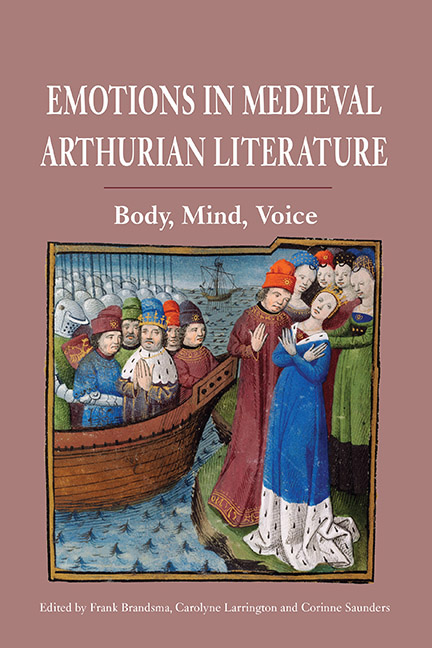6 - Tears and Lies: Emotions and the Ideals of Malory’s Arthurian World
Published online by Cambridge University Press: 21 May 2021
Summary
‘You who subdue others, strive to conquer yourself.’
Extreme emotions are a common feature of medieval romance, be they swooning at the sight of the beloved or tears shed by knights at the death of their fellows. In this respect Thomas Malory's Morte Darthur is no exception. Yet the emotions expressed both at the individual and the collective level in the Morte bring out, as this chapter will demonstrate, an essential tool in the interpretation of Malory's politically astute rewriting of the Arthurian story.
Malory uses a specific phrase, ‘oute of mesure’, in a number of places in the Morte; as I have demonstrated elsewhere, his use of the phrase leads to a direct connection between emotions of an extreme nature and violence, itself the trigger for the demise of the Arthurian fellowship. On the basis of my earlier analysis I concluded that displays of extreme emotion in the final books or tales of the Morte reveal excesses of passion, or lack of temperance, the virtue praised in numerous tracts, from the fathers of the Church and Christian theologians to writers of mirrors for princes and chivalric manuals. This chapter directs attention to another, related, area: displays of extreme emotion intended to affect public events and others’ emotions. The case study used here is the highly charged and dramatically complex episode in the last book of the Morte when Lancelot returns Guenevere to Arthur at the pope's request. In this decisive moment, Lancelot displays the very ideal of nobility – or so Malory seems to want his readers to see it – as he relinquishes Guenevere and professes his continuing loyalty to Arthur. Lancelot's attitude stirs the emotions of all the audience apart from Gawain, who stands unmoved. All the bystanders – that is, the entire court, male and female – weep copiously: ‘all the knyghtes and ladyes that were there wepte as they were madde, and the tearys felle on kynge Arthur hys chekis’. Modern critics tend to accept these public tears (Lancelot’s, Arthur's and the court’s) as testimony of a public recognition of Lancelot's nobility despite all other evidence of his affair with Guenevere. This chapter explores the context in which a medieval audience would experience and understand these emotions.
- Type
- Chapter
- Information
- Emotions in Medieval Arthurian LiteratureBody, Mind, Voice, pp. 105 - 122Publisher: Boydell & BrewerPrint publication year: 2015
- 1
- Cited by



